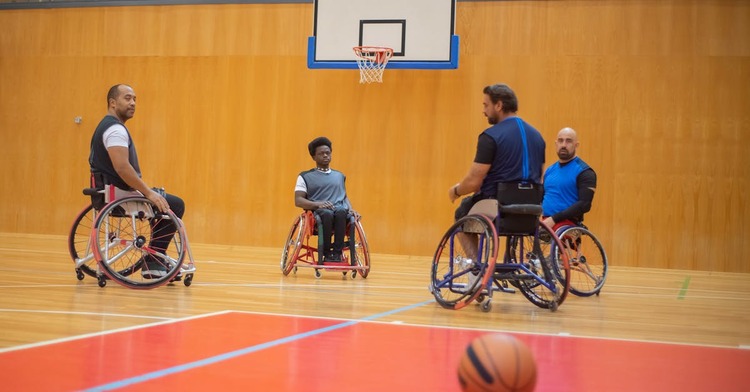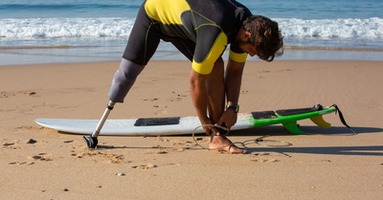
What is the American Association of People with Disabilities (AAPD)?
The American Association of People with Disabilities (AAPD) is a leading national cross-disability rights organization dedicated to improving the lives of people with disabilities. Founded in 1995, AAPD aims to increase the political and economic power of people with disabilities through a variety of initiatives focused on advocacy, policy development, and program implementation. AAPD’s mission is to ensure that people with disabilities can live, learn, work, and participate fully in all aspects of society. With a broad and inclusive approach, AAPD addresses a wide range of issues that affect the disability community, including employment, education, healthcare, and accessibility.
What Does AAPD Do?
AAPD engages in numerous activities and initiatives to support and empower people with disabilities. Some of the key areas of focus include:
Advocacy and Policy Initiatives: AAPD works to influence public policy at the local, state, and federal levels. The organization advocates for legislation and regulations that promote the rights and inclusion of people with disabilities. This includes efforts to improve access to education, healthcare, and employment opportunities.
Employment Programs: Recognizing the high unemployment rates among people with disabilities, AAPD has developed several programs aimed at increasing employment opportunities. This includes partnerships with employers, job fairs, and initiatives to promote workplace accommodations.
Education and Youth Programs: AAPD offers programs to support the educational advancement of young people with disabilities. This includes scholarships, internships, and mentoring opportunities designed to help students achieve their academic and career goals.
Accessibility and Mobility: AAPD advocates for policies that improve accessibility in public spaces, transportation, and housing. The organization works to ensure that people with disabilities can navigate their communities safely and independently.
Community Engagement and Leadership Development: AAPD provides resources and opportunities for individuals with disabilities to become leaders in their communities. This includes the Disability Rights Storytellers Fellowship and the NBCUniversal Tony Coelho Media Scholarship, which empower individuals to share their stories and advocate for change.
Does AAPD Act as an Advocate for Individuals with Disabilities?
Yes, AAPD acts as a powerful advocate for individuals with disabilities. The organization’s advocacy efforts are aimed at creating a more inclusive society where people with disabilities have equal access to opportunities and resources. AAPD works on various fronts to achieve this goal, including:
Legislative Advocacy: AAPD actively participates in the legislative process by lobbying for laws and policies that protect the rights of people with disabilities. This includes working to ensure the enforcement of the Americans with Disabilities Act (ADA) and advocating for new legislation that addresses emerging issues.
Legal Advocacy: AAPD supports legal efforts to protect the rights of people with disabilities. This includes filing amicus briefs in key court cases and collaborating with other disability rights organizations on litigation strategies.
Public Awareness Campaigns: AAPD runs campaigns to raise awareness about the issues facing people with disabilities. These campaigns aim to educate the public, policymakers, and business leaders about the importance of inclusion and accessibility.
Coalition Building: AAPD collaborates with other advocacy organizations, community groups, and allies to amplify the voices of people with disabilities. By working together, these coalitions can achieve greater impact and drive systemic change.
Does AAPD Defend People with Disabilities?
AAPD is deeply committed to defending the rights of people with disabilities. The organization takes a proactive approach to addressing discrimination and ensuring that individuals with disabilities are treated fairly and with respect. Some of the ways AAPD defends people with disabilities include:
Monitoring and Enforcement: AAPD monitors the implementation of disability rights laws and advocates for strong enforcement mechanisms. This includes working with government agencies to ensure that existing regulations are upheld and that violators are held accountable.
Support for Victims of Discrimination: AAPD provides support and resources to individuals who have experienced discrimination. This includes connecting them with legal assistance, offering guidance on filing complaints, and providing information on their rights.
Public Policy Advocacy: AAPD advocates for policies that protect the rights of people with disabilities in various areas, including employment, education, healthcare, and housing. The organization works to ensure that new policies are inclusive and that existing protections are not weakened.
Who is a Famous Advocate for Disability Rights?
One of the most famous advocates for disability rights is Judy Heumann. Judy Heumann is a lifelong activist who has played a pivotal role in advancing the rights of people with disabilities. Her advocacy work began in the 1970s when she fought for the passage of Section 504 of the Rehabilitation Act, which prohibits discrimination based on disability in federally funded programs. She also served as the Assistant Secretary for the Office of Special Education and Rehabilitative Services in the U.S. Department of Education and as the Special Advisor for International Disability Rights at the U.S. Department of State. Judy Heumann’s tireless efforts have had a profound impact on the disability rights movement and have inspired countless individuals to advocate for change.
What Do You Call Someone Who Advocates for Disabilities?
Someone who advocates for disabilities is commonly referred to as a disability rights advocate or disability rights activist. These individuals work to promote the rights and inclusion of people with disabilities through various means, including policy advocacy, public awareness campaigns, and community organizing. Disability rights advocates may also engage in legal action to challenge discriminatory practices and ensure the enforcement of disability rights laws.
What is the Biggest Disability in the US?
The most common disability in the United States is mobility-related disabilities. According to the U.S. Census Bureau, approximately 13.7% of adults in the U.S. have a mobility disability, which includes difficulty walking or climbing stairs. This is followed by cognitive disabilities (10.8%), hearing disabilities (5.9%), and vision disabilities (4.6%). Mobility-related disabilities can have a significant impact on an individual’s ability to perform daily activities and participate fully in society, making accessibility and mobility key areas of focus for disability rights organizations like AAPD.
AAPD’s Key Programs and Initiatives
AAPD runs several key programs and initiatives aimed at empowering people with disabilities and promoting their rights. Some of these programs include:
Disability Mentoring Day (DMD): Disability Mentoring Day is an annual event that connects students and job seekers with disabilities to mentors in their desired career fields. The program aims to provide participants with valuable career advice, job shadowing opportunities, and networking connections.
AAPD Summer Internship Program: This program places college students and recent graduates with disabilities in internships within congressional offices, federal agencies, non-profit organizations, and private sector companies in Washington, D.C. The goal is to provide participants with hands-on work experience, professional development opportunities, and exposure to potential career paths.
NBCUniversal Tony Coelho Media Scholarship: Named after former Congressman Tony Coelho, a primary author of the ADA, this scholarship is awarded to undergraduate and graduate students with disabilities who are pursuing careers in media, communications, or entertainment. The scholarship aims to support the next generation of media professionals with disabilities and promote diverse representation in the industry.
Disability Rights Storytellers Fellowship: This fellowship program provides people with disabilities the opportunity to share their stories and experiences through various media platforms. Fellows receive training and support to develop their storytelling skills and create content that raises awareness about disability rights issues.
How AAPD Supports Accessibility and Mobility
Accessibility and mobility are critical issues for people with disabilities, and AAPD is at the forefront of advocating for improvements in these areas. The organization works to ensure that public spaces, transportation systems, and housing are accessible to all individuals, regardless of their physical abilities. Some of the ways AAPD supports accessibility and mobility include:
Advocating for Accessible Transportation: AAPD works to improve transportation options for people with disabilities, including advocating for accessible public transit, ride-sharing services, and pedestrian infrastructure. The organization also supports policies that promote the development of accessible vehicles and transportation technologies.
Promoting Universal Design: Universal design is the concept of creating environments that are accessible to all people, regardless of their abilities or disabilities. AAPD advocates for the adoption of universal design principles in the construction of buildings, public spaces, and consumer products. This includes working with architects, designers, and policymakers to ensure that accessibility is considered in the planning and development process.
Supporting Housing Accessibility: AAPD advocates for policies that increase the availability of accessible and affordable housing for people with disabilities. This includes promoting the inclusion of accessibility features in new housing developments and supporting programs that provide financial assistance for home modifications.
Improving Digital Accessibility: In today’s digital age, accessibility extends beyond the physical world to include online spaces. AAPD works to ensure that websites, mobile apps, and digital content are accessible to people with disabilities. This includes advocating for the implementation of accessibility standards and providing resources for developers and content creators.
The Role of AAPD in Employment Advocacy
Employment is a key area of focus for AAPD, as people with disabilities often face significant barriers to entering and advancing in the workforce. AAPD works to address these challenges through a variety of initiatives aimed at increasing employment opportunities and promoting workplace inclusion. Some of the ways AAPD advocates for employment rights include:
Promoting Inclusive Hiring Practices: AAPD collaborates with employers to promote inclusive hiring practices and create more job opportunities for people with disabilities. This includes providing training and resources on disability awareness, reasonable accommodations, and the benefits of a diverse workforce.
Supporting Job Seekers with Disabilities: AAPD offers programs and resources to help job seekers with disabilities find employment. This includes job fairs, networking events, and career development workshops. The organization also provides information on job search strategies, resume writing, and interview preparation.
Advocating for Workplace Accommodations: AAPD advocates for policies that ensure people with disabilities have access to reasonable accommodations in the workplace. This includes promoting the implementation of the ADA’s provisions related to accommodations and providing guidance to employers on how to create inclusive work environments.
Encouraging Corporate Responsibility: AAPD works with businesses to promote corporate social responsibility and encourage companies to adopt policies and practices that support the inclusion of people with disabilities. This includes recognizing employers who demonstrate leadership in disability inclusion through awards and public recognition programs.
AAPD’s Impact on Education and Youth Development
Education is another critical area where AAPD makes a significant impact. The organization works to ensure that students with disabilities have access to quality education and the support they need to succeed academically. Some of the ways AAPD supports education and youth development include:
Advocating for Inclusive Education Policies: AAPD advocates for policies that promote inclusive education and ensure that students with disabilities have equal access to educational opportunities. This includes supporting the Individuals with Disabilities Education Act (IDEA) and other legislation that protects the rights of students with disabilities.
Providing Scholarships and Grants: AAPD offers scholarships and grants to support the educational pursuits of students with disabilities. These financial resources help students cover the costs of tuition, books, and other educational expenses, allowing them to focus on their studies and achieve their academic goals.
Supporting Transition to Postsecondary Education: AAPD provides resources and guidance to help students with disabilities transition from high school to postsecondary education. This includes information on college admissions, financial aid, and disability services available at colleges and universities.
Promoting STEM Education: AAPD encourages students with disabilities to pursue careers in science, technology, engineering, and mathematics (STEM) fields. The organization offers programs and initiatives that provide mentorship, hands-on learning experiences, and exposure to STEM careers.
The Importance of Healthcare Advocacy by AAPD
Access to healthcare is a fundamental right, and AAPD works to ensure that people with disabilities have access to the healthcare services they need. The organization advocates for policies that address the unique healthcare needs of people with disabilities and promote health equity. Some of the ways AAPD supports healthcare advocacy include:
Promoting Accessible Healthcare Services: AAPD advocates for the accessibility of healthcare facilities, services, and medical equipment. This includes ensuring that healthcare providers are trained to meet the needs of patients with disabilities and that medical offices are physically accessible.
Addressing Health Disparities: AAPD works to address health disparities that disproportionately affect people with disabilities. This includes advocating for research and policies that address the social determinants of health and promote health equity.
Supporting Mental Health Services: AAPD recognizes the importance of mental health and advocates for access to mental health services for people with disabilities. This includes promoting policies that increase funding for mental health programs and support the integration of mental health services into primary care.
Advocating for Inclusive Health Insurance Policies: AAPD works to ensure that health insurance policies do not discriminate against people with disabilities. This includes advocating for coverage of essential health benefits, reasonable accommodations, and the elimination of discriminatory practices in health insurance underwriting.
Building a Strong Community Through AAPD
Community engagement is at the heart of AAPD’s mission. The organization works to build strong, inclusive communities where people with disabilities can thrive. Some of the ways AAPD fosters community engagement include:
Organizing Community Events: AAPD organizes events that bring together people with disabilities, their families, and allies to celebrate disability culture and promote inclusion. These events provide opportunities for networking, learning, and community building.
Supporting Grassroots Advocacy: AAPD empowers individuals and local organizations to advocate for disability rights in their communities. This includes providing training, resources, and support for grassroots advocacy efforts.
Promoting Volunteerism: AAPD encourages volunteerism and community service among people with disabilities. The organization connects individuals with volunteer opportunities that match their skills and interests, allowing them to contribute to their communities and gain valuable experience.
Celebrating Disability Culture: AAPD celebrates disability culture through various initiatives that highlight the achievements and contributions of people with disabilities. This includes recognizing Disability Pride Month and promoting disability art, literature, and media.
Conclusion
The American Association of People with Disabilities (AAPD) is a vital organization that works tirelessly to improve the lives of people with disabilities. Through its advocacy, policy initiatives, and programs, AAPD strives to create a more inclusive society where people with disabilities have equal access to opportunities and resources. Whether through advocating for accessible transportation, promoting inclusive education policies, or supporting employment opportunities, AAPD’s impact is far-reaching and profound. By empowering individuals with disabilities and advocating for their rights, AAPD is helping to build a world where everyone can live, learn, work, and participate fully in society.
For more information about AAPD and its programs, visit their website.
.png)





